10 October 2022
Youth astrobiology education continues at Blue Marble Space Institute of Science
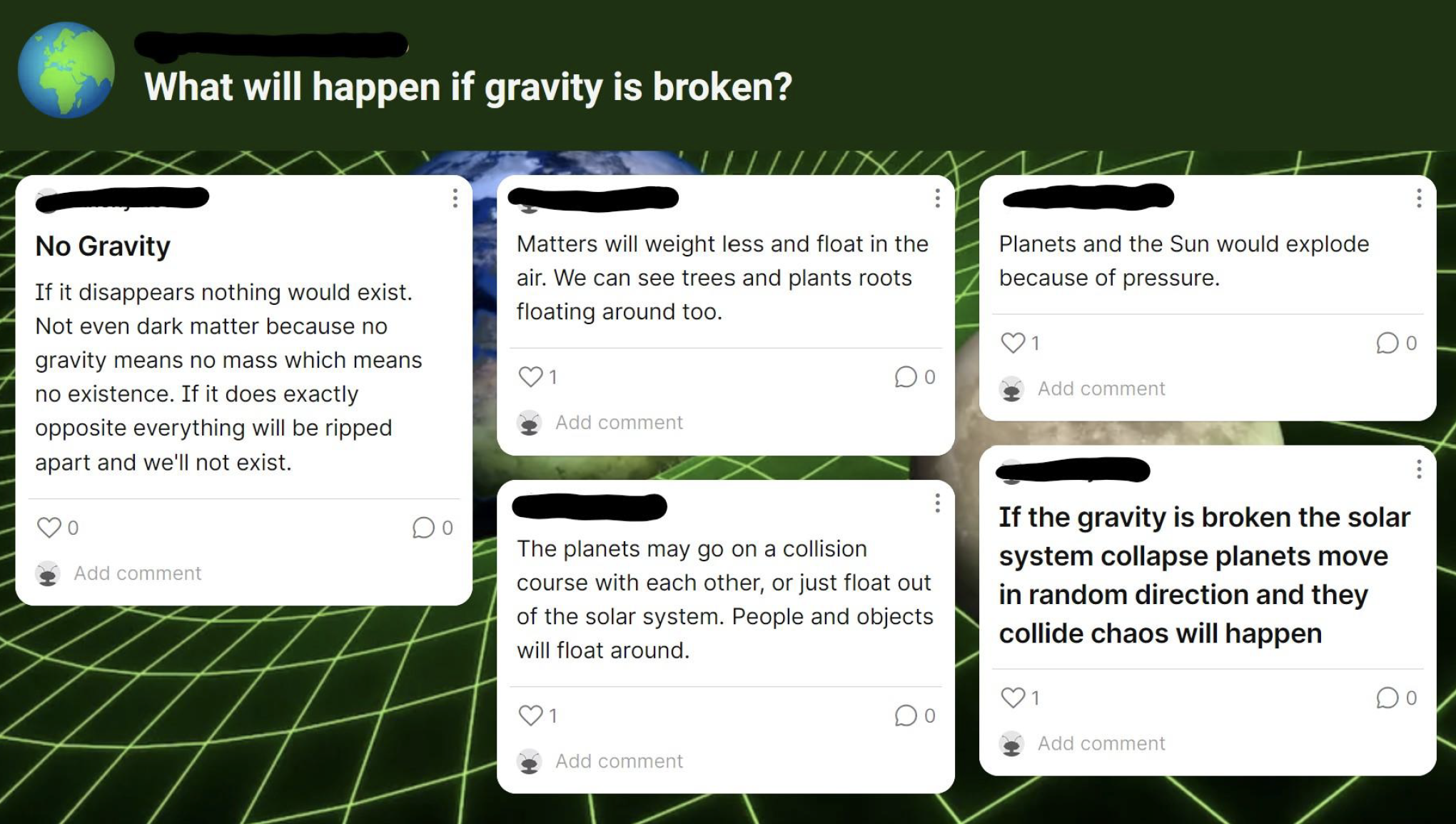
On July 16, 2003, the famed former President of South Africa and Nobel Peace Prize Laureate Nelson Mandela stood in front of a crowd in the midst of the founding of the Mindset Network and said “education is the most powerful weapon which we can use to change the world”.
7 October 2022
#AntarcticLog: Back to the ice!
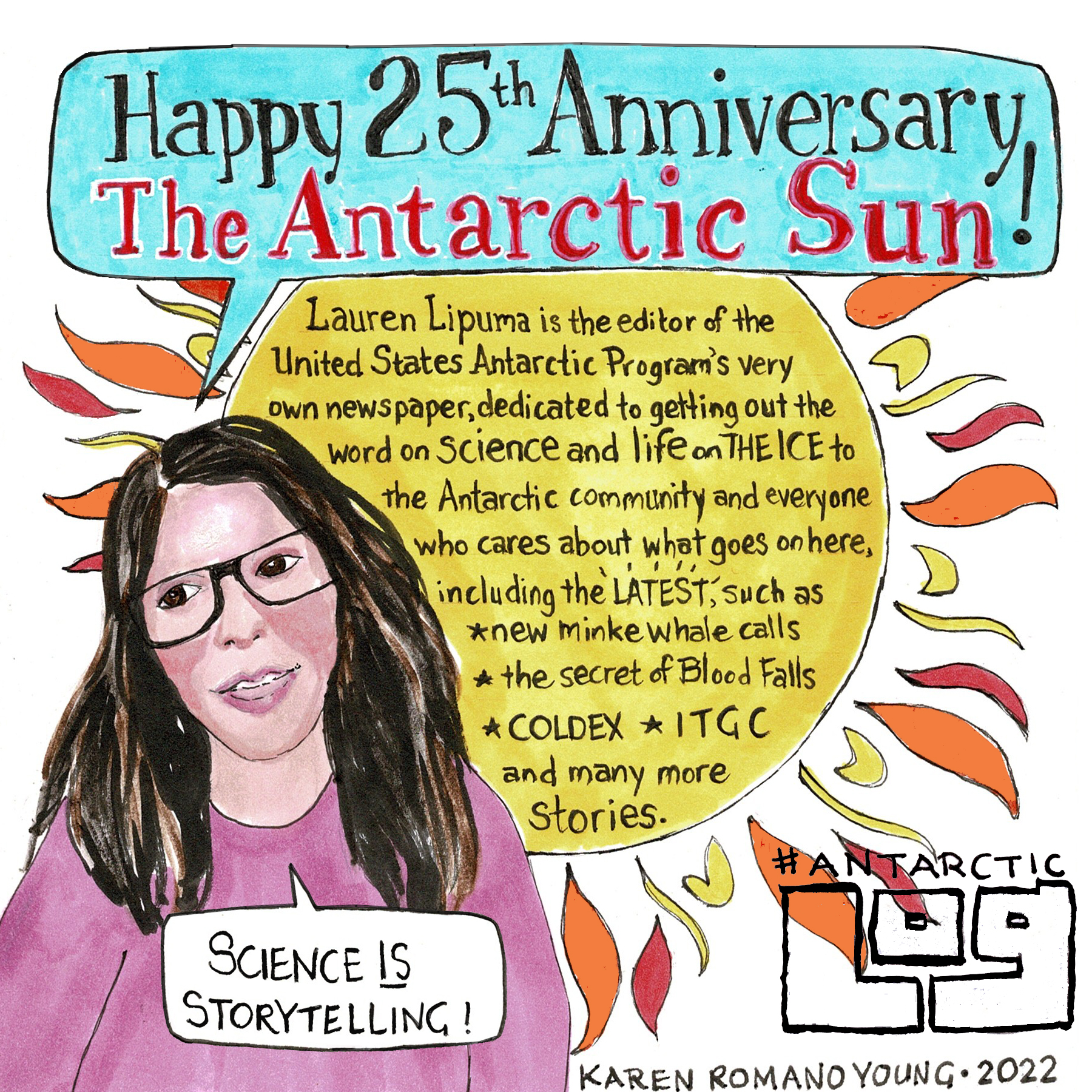
It’s springtime in Antarctica, and the scientists are heading back to the ice. Not only the scientists, but the support people working at the stations, and yes, even a few science communicators and artists. Among the first to travel to McMurdo and the South Pole in the wake of the Covid pandemic is Lauren Lipuma, editor of the U.S. Antarctic Program (and the National Science Foundation’s) newspaper, The Antarctic Sun.
30 September 2022
#AntarcticLog: The wombat connection
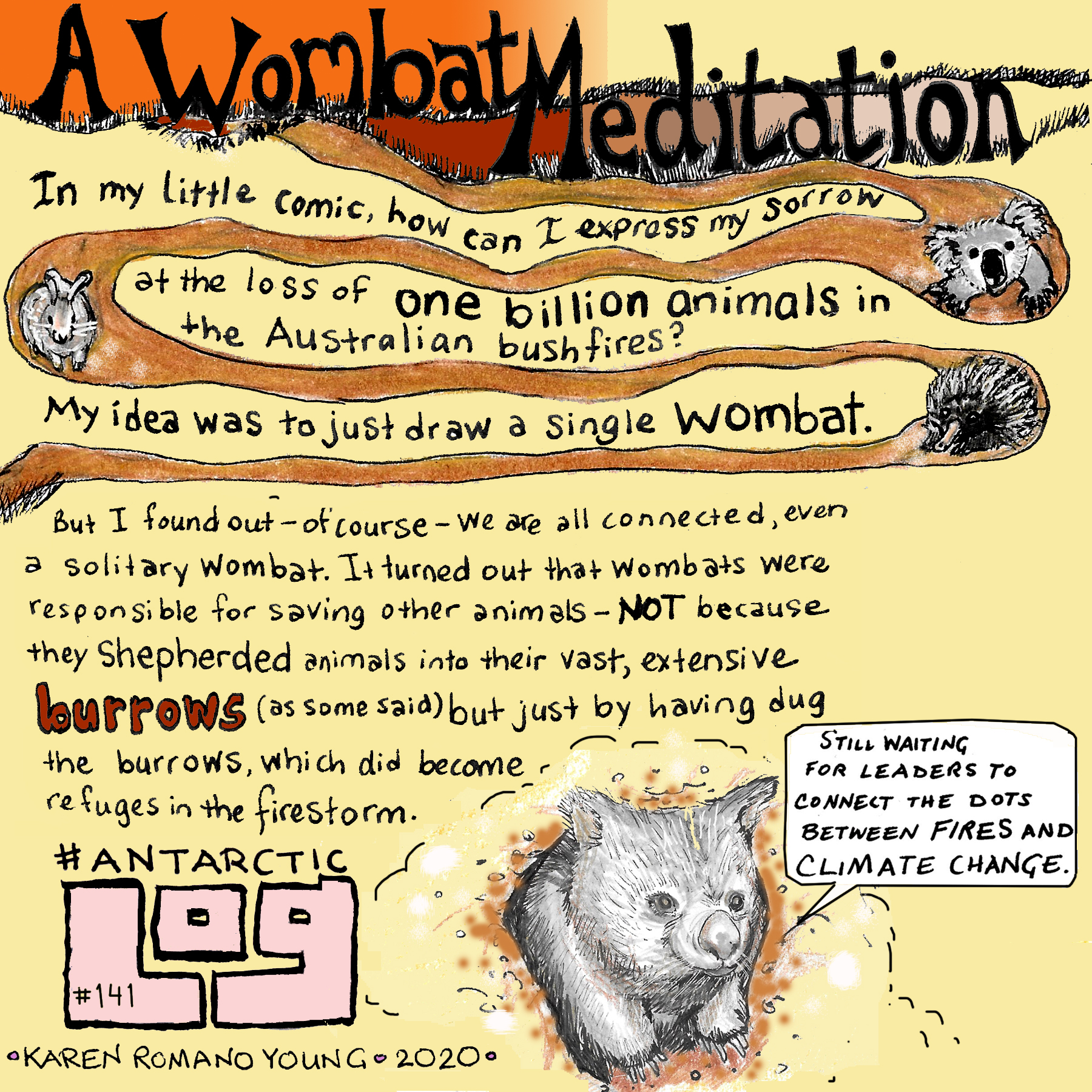
I’m in Crownpoint, New Mexico this week, researching future comics at Navajo Technical University– and learned that the campus here used to have more trees. Piñon and juniper have died because of recent drought, says Abishek Roychowdhury, who teaches environmental science here.
23 September 2022
#AntarcticLog: Why did the ship cross the Drake Passage?
Why did the R/V Laurence M. Gould cross the fierce, fearsome Drake Passage? To get to the other side — to the Antarctic Peninsula and Palmer Station.
16 September 2022
#AntarcticLog: The importance of research ships
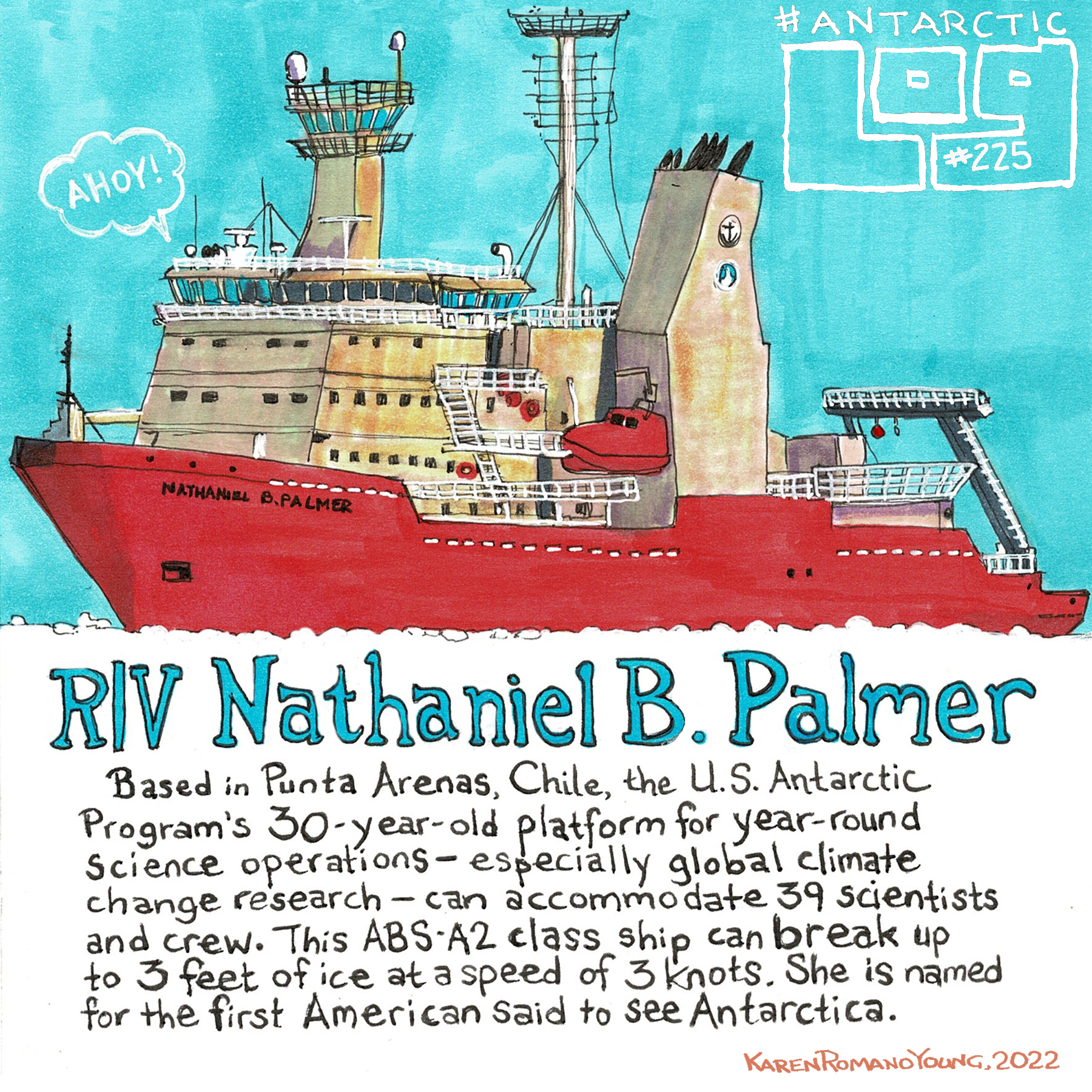
I learn so much from drawing ships. Here is E/V Nautilus, from an artist-in-residence and science communications tour I did in 2015. Nautilus is the mother ship to Hercules, a deep-diving ROV.
9 September 2022
#AntarcticLog: A close look at a glacier’s edge
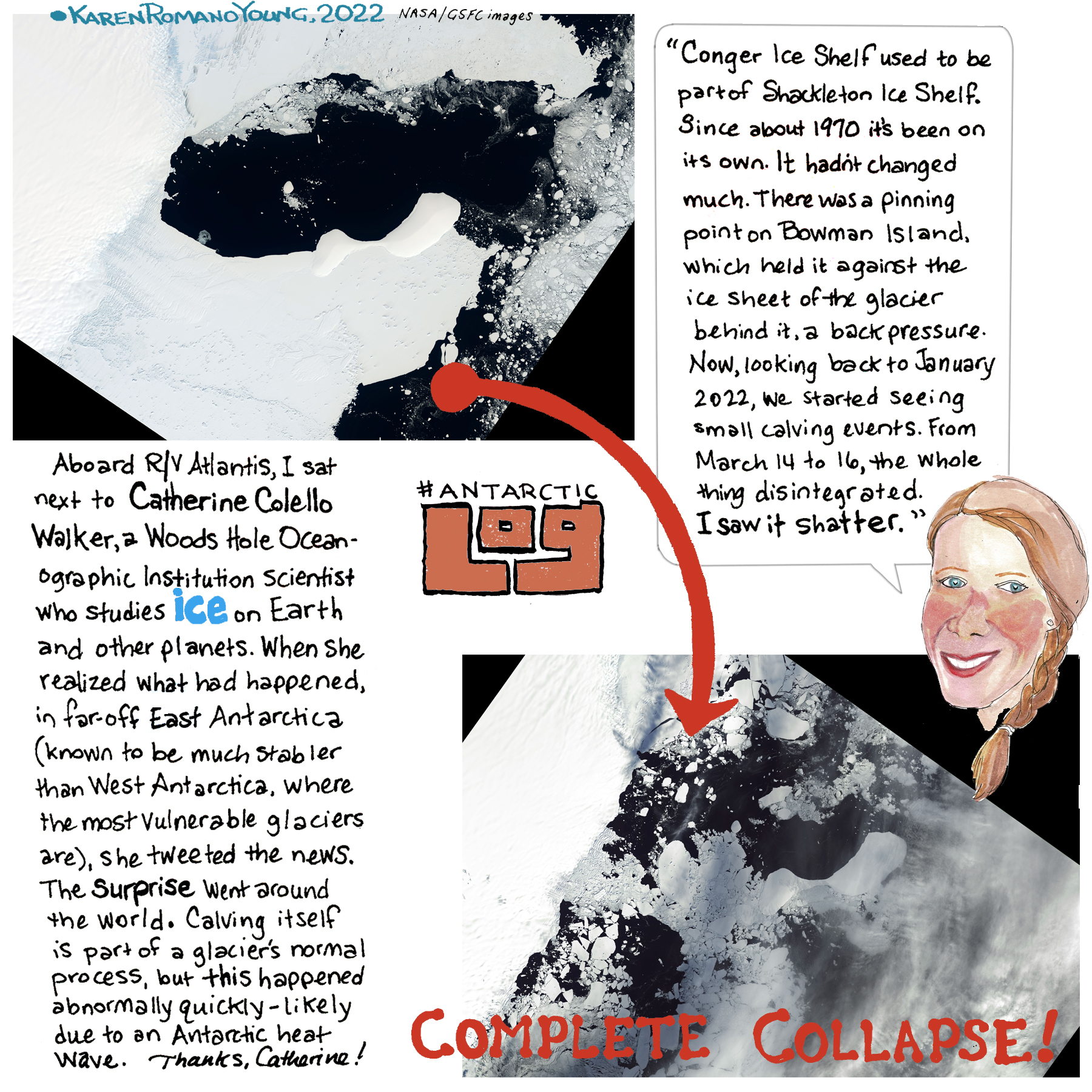
The Alvin Science Verification Expedition may be over (science? verified!) but the research and findings are ongoing. What’s more, the scientists aboard bring plenty of fascinating stories to the table — not all of them related to Alvin.
2 September 2022
#AntarcticLog: (Climate) refugees
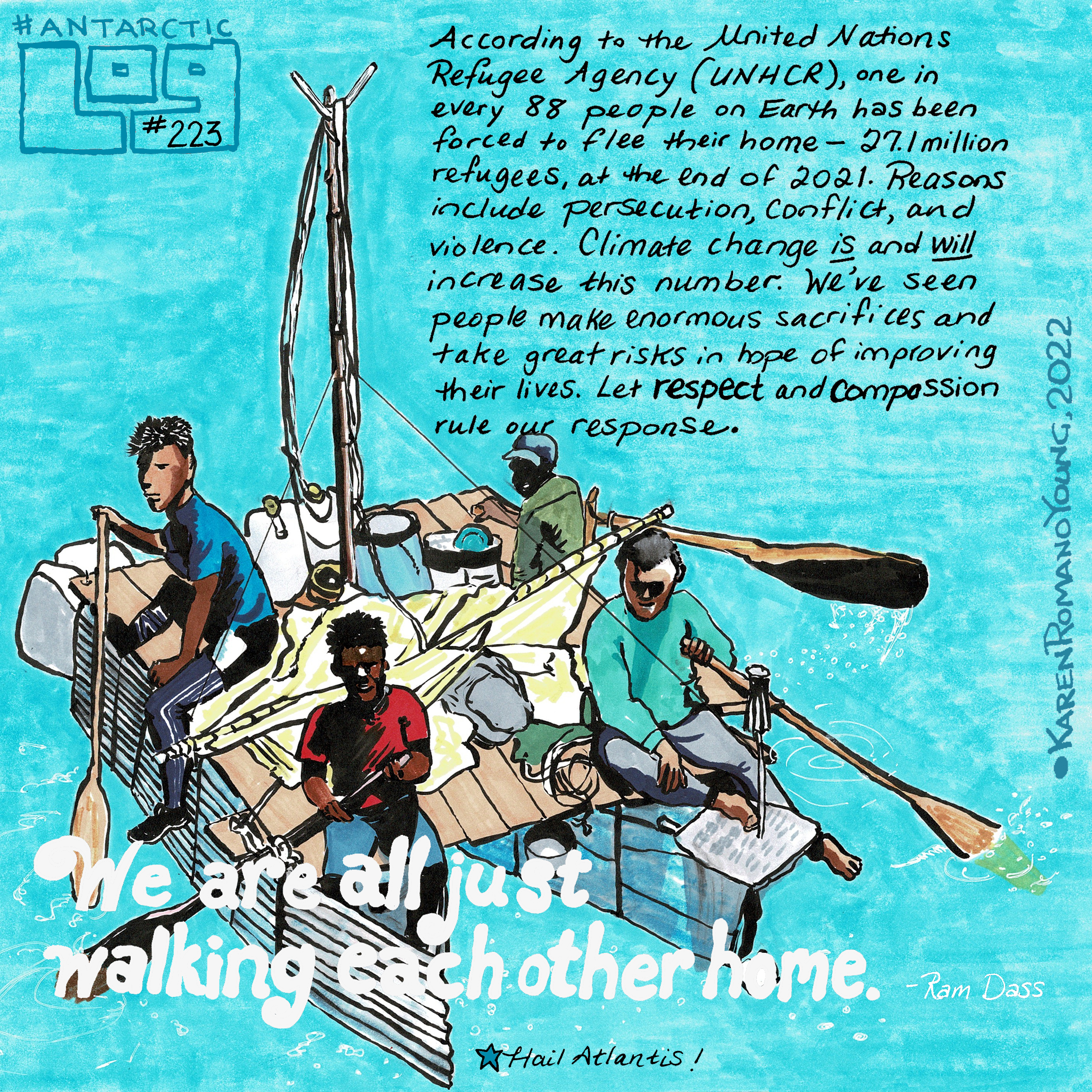
More than the population of Australia. That’s how many people the United Nations Refugee Agency says are refugees. These numbers are unimaginable, inconceivable, and overwhelming.
26 August 2022
#AntarcticLog: Finishing up with Alvin
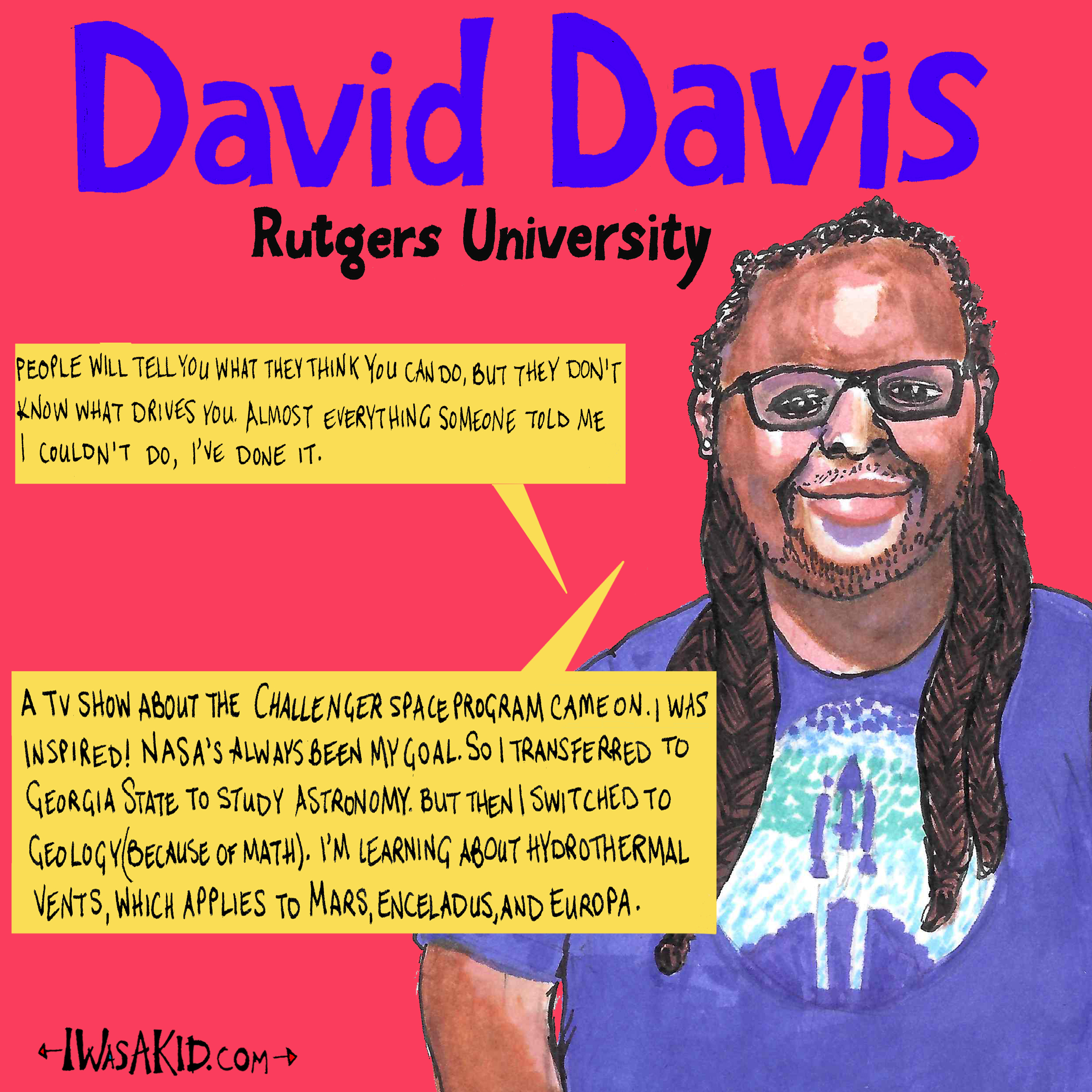
Hello from the tail end of the Alvin Science Verification Expedition, in which we worked to verify the submersible Alvin’s ability to carry scientists, their equipment, and samples to depths of 6500 meters. The upshot: human-operated vehicle HOV Alvin is ready, willing, and able indeed.
19 August 2022
#AntarcticLog: Alvin dive 5101
Greetings once again from sea, this time the Caribbean Sea, off the Cayman Islands to be precise, way down deep at the Mid-Cayman Rise. Today is Alvin dive 5101, on the Beebe Vent Field (named for the deep-sea pioneer William Beebe who, with Otis Barton, descended 417m in the bathysphere in 1930, the year Woods Hole Oceanographic Institution was founded), the deepest known hydrothermal vents in the world. Wonder what we’ll find…
12 August 2022
#AntarcticLog: Diving on the Mid-Cayman Rise
Leg 2 of the Alvin Science Verification Expedition finds us once again exploring new territory. After all, that’s the point of certifying Alvin to dive 6500 meters — to give us access to much more of the sea floor. Today we’re diving on the Mid-Cayman Rise, a spreading center in the Earth’s crust at the deepest point in the Caribbean.


 The Plainspoken Scientist is the science communication blog of AGU’s Sharing Science program. With this blog, we wish to showcase creative and effective science communication via multiple mediums and modes.
The Plainspoken Scientist is the science communication blog of AGU’s Sharing Science program. With this blog, we wish to showcase creative and effective science communication via multiple mediums and modes.
Recent Comments